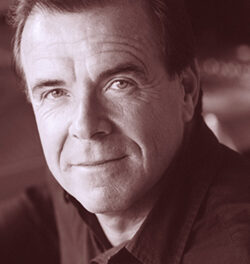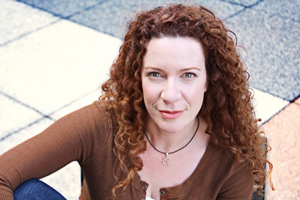The entrance to the Fayetteville Symphony Orchestra‘s permanent home, the Linda and Ralph Huff Concert Hall, at Methodist University, was miraculously transformed last year and re-christened in December, resulting in a gateway to great music that significantly enhances visitors’ experiences and expectations as they arrive. (The auditorium itself, already a more than acceptable venue, is slated for an upgrade soon.) This new lobby is a good thing, all by itself, but the fact is that the orchestra, too, is in the midst of a significant educational transformation. The FSO’s youth orchestra is growing apace, with good preparatory work being done by Suzuki-based training at an after-school strings program, augmented by ensemble opportunities. A small student group entertained patrons in the lobby as they arrived for this concert with engaging playing. And the board chair announced yet another endowment before the concert began. Yep, things are looking up in Cumberland Co., where Stefan Sanders continues to generate buzz for one of North Carolina’s oldest regional orchestras. They’ve been very good for quite a while, but every time we hear them, the wow factor increases. The FSO’s valentines concert, “Love Is in the Air,” proved to be the most impressive we’ve heard thus far.
The program hit all the requisite marks with Romeo and Juliet music by Lennie (whose centennial is being observed everywhere, all the time) and excerpts from Prokofiev’s best-known ballet (that would be R&J too) plus a suite of music from Casablanca by the legendary film composer Max Steiner and Rachmaninoff’s Piano Concerto No. 2, splendidly realized with the great American pianist of South African birth, Anton Nel, as soloist.
Everything about this program was admirable, from the 1965 arrangement by Maurice Peress of Bernstein’s West Side Story overture, enthusiastically and incisively played, through that Casablanca suite, a delight to hear on its own, without the “distraction” of the film (so we could concentrate on the quite remarkable score Steiner created with the principal intent of having the music literally fade into the background…), to the “big” pieces of the evening, five substantial cuts from the late-’30s Soviet ballet and Rachmaninoff’s beloved turn-of-the-century concerto.
These last two merit special attention because they were so wonderfully realized. The R&J bits did not mirror the program listing but constituted a wonderful condensation of the score, ranging (as the conductor explained) from the dramatic introduction (“Montagues and Capulets”) to the first meeting at the ball (“Masks”) to the love music (“Romeo and Juliet”) to the death of her cousin Tybalt to the powerful scene in the tomb. The playing was absolutely splendid throughout, with quite breathtaking mastery of ensemble, many and frequent solo bits, color, intensity, and incisiveness, all leading to a powerful summation of the finest moments of the score, a work that stands among the very best of the 20th century. The FSO nailed it, with precision and great clarity.
And then there was the concerto. Nel’s outstanding reputation preceded him, and we were fortunate to be able to experience his art. That he and the conductor share roots at the University of Texas at Austin’s Butler School of Music probably helped draw him here for this engagement. That the two artists worked so well together was manifest at every turn (well, no turns from the soloist, as he had the concerto profoundly in his fingers and his spirit, too, so he played from memory).
We’ve heard this music often, on records (starting with the composer’s own renditions) and in concert halls, great and small. Never before has it emerged with such clarity and in such striking balance. Here, everything was audible, from the mid-range and low left-hand growlings at the keyboard, never once obscured by too much orchestra, to the softest solo wind and brass work from the orchestra, always immaculately and flawlessly matched to the guest pianist. The strings, too, merit special notice, for these are well-disciplined, unified sections that manage to speak with their own distinctive voices when required.
During the pre-concert talk (hosted by Joshua Busman), Nel spoke of his love for chamber music – this performance reflected that love and appreciation of the true teamwork involved in the very best renditions of the very greatest music. Rachmaninoff’s concerti are called war horses. This was a thoroughbred, and we were richly rewarded by the work of all concerned that led to its performance on this very special occasion.
Four more concerts remain this season, including Beethoven’s Ninth in April. For details, see our calendar.
Edited/corrected 2/11/19.












